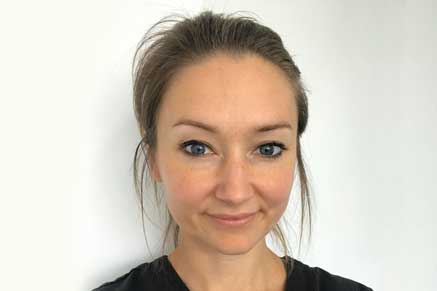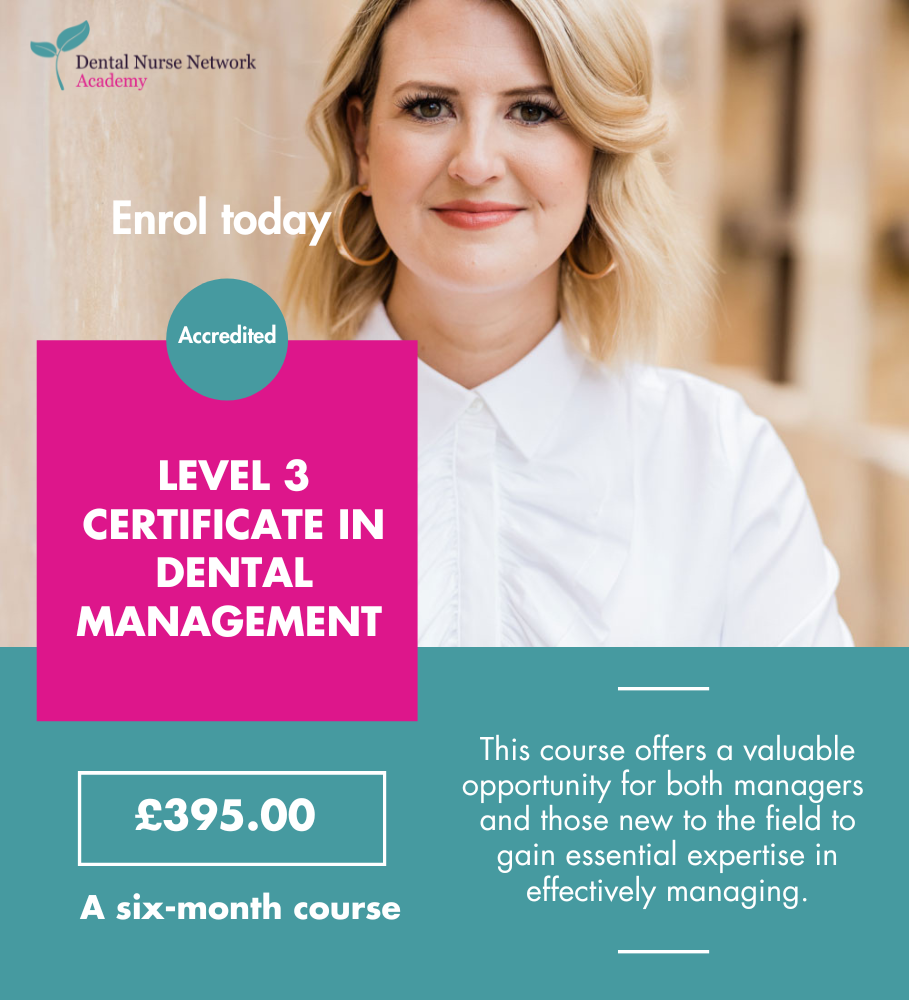 When qualifying as a dental nurse, you passed your exams with flying colours and gained a merit. You are currently studying dental sedation and have recently qualified as a dental radiographer, passing the radiography exam with a grade of outstanding (an amazing achievement). To help inspire and encourage dental nurses who are interested in progressing their careers by taking post-registration qualifications, we would love to know more about you and your career development. We would also like to hear your top tips for studying that helped you to achieve such amazing results.
When qualifying as a dental nurse, you passed your exams with flying colours and gained a merit. You are currently studying dental sedation and have recently qualified as a dental radiographer, passing the radiography exam with a grade of outstanding (an amazing achievement). To help inspire and encourage dental nurses who are interested in progressing their careers by taking post-registration qualifications, we would love to know more about you and your career development. We would also like to hear your top tips for studying that helped you to achieve such amazing results.
About you
What made you choose a career in dentistry?
I was working as a waitress when I spotted an advert in a local paper for a dental nurse training position in a dental practice near to me. The idea of working as part of a team and helping people appealed to me, and although I knew nothing about dentistry or dental nursing, I’ve always liked a challenge – so I responded.
Why did you choose to study post-registration qualifications in dental sedation and radiography?
The practice where I work offers very dentally anxious patients the opportunity to choose sedation as an aid to help them get the treatment that they need. Being involved with supporting these patients gives me great job satisfaction and provides another dimension to my dental nursing career.
Radiography is a necessary qualification for me as I have recently become part of an implant team where taking dental panoramic tomograms (DPTs) is an integral part of the treatment planning process.
How will your new qualification in dental radiography benefit you as a dental nurse?
I am now able to take radiographs for patients in particular DPTs. This is beneficial to any dentist that I work with. It also provides me with an opportunity to interact with patients and play an important role in their treatment.
I always think it is beneficial for both patients and yourself to obtain additional knowledge and skills keeping the job interesting and challenging.
As a former colleague and now good friend, I know that you (like me) have young children. How do you juggle work, family and studying?
It can be difficult to stick to set study times, as family life does not always allow for this. I have had to be flexible and be ready to study or revise whenever there is a quiet moment – this doesn’t happen often when you have four children!
I have to be inventive when finding ways to study – I do things like taking books and study materials to the side-lines of football training or study while waiting for a gymnastics class to end.
My books are with me wherever I go!
You have gained amazing results in your exams, gaining a merit in dental nursing and an outstanding in radiography. What top tips would you give to other nurses studying for exams?
My tips for studying for exams would be to really make sure you understand your subject – I don’t find it’s enough just to memorise facts. I always try to gather as much information as I can from different sources – this could be books, the internet, or even pestering dentists with questions.
I find it helpful to regularly test my knowledge by taking practice tests. This highlights any areas I need to spend more time on or gives me the confidence that the knowledge is there.
It goes without saying that it’s never a good idea to be revising up to the last minute – in fact, I give myself a break before each exam to relax and clear my head.
Written by Emma Edwards RDN

